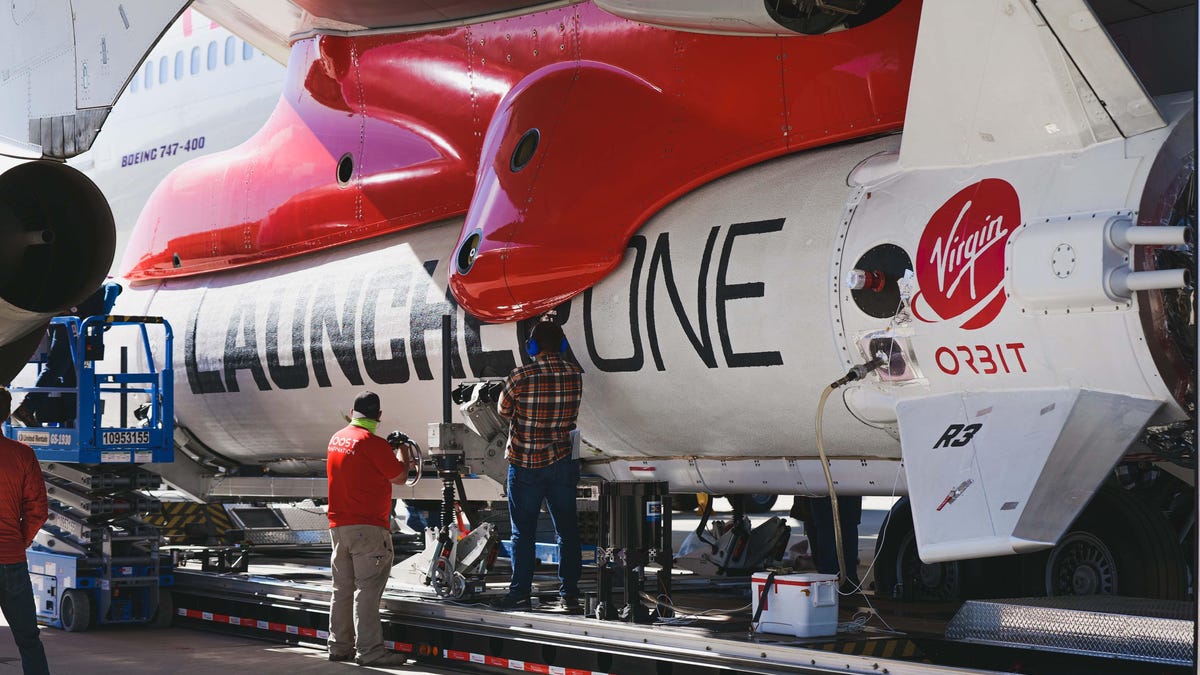Virgin Orbit will try again to blast LauncherOne to space before Christmas
The first attempt in May failed to make orbit. This time the stakes are higher, with (nonhuman) passengers on board.

A Virgin Orbit LauncherOne rocket mated to the modified 747 Cosmic Girl.
Richard Branson is hoping to kick off the holiday season by shooting a rocket to space from midair later this month. The Virgin founder's space launch subsidiary, Virgin Orbit, has announced the launch window for its latest demonstration mission and still aims to meet a goal of returning to flight before the year is out.
Virgin Orbit plans to send satellites into orbit using a rocket that ignites after being released in midair from the belly of a modified 747. Its first demonstration launch in May failed to reach orbit as hoped; a 747 named Cosmic Girl dropped one of the company's LauncherOne rockets, but the rocket's engines fired for only about 10 seconds.
The company later said the abbreviated flight was caused by an issue with a high-pressure line.
Virgin Orbit now says it has reviewed and responded to all the data from that first demonstration and is prepared to try again. The space startup is confident enough in its chances of success that it'll be carrying satellites for paying customers for the first time. It's teamed up with NASA, which works to match research satellites from a number of universities with commercial launch providers.
Nine small CubeSats will be on board, including one from California Polytechnic University that can help predict space weather, and another from the University of Louisiana, Lafayette that'll allow students to connect and interact with it via a smartphone app. The full manifest can be found here.
Virgin Orbit says the launch window for its Demo 2 mission will open on Saturday, Dec. 19, from 10 a.m. to 2 p.m. PT. A backup window is also available the following day.

